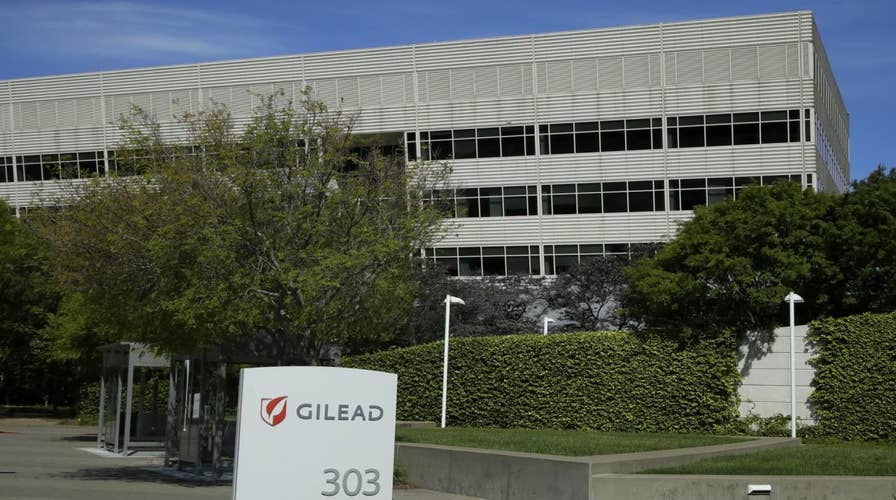In late February, I traveled to Nebraska Medical Center for "Tucker Carlson Tonight" and met with several impressive physicians and nurses in charge of the National Quarantine Unit there.
They were taking care of the first COVID-19 cluster, more than a dozen passengers from the Diamond Princess cruise ship. They taught me about the severity of the illness and how highly contagious it is and I knew then that we were facing a formidable foe.
One of my final interviews was with a bearded researcher, an unassuming yet clearly brilliant scientist, Dr. Andre Kalil. He was a principal investigator into the National Institutes of Health-sponsored multicenter trial on an antiviral drug, Remdesivir, which had been studied against Ebola and found not to be effective.
But from a purely biochemical perspective, there was more reason to be optimistic for the drug as a potential treatment for COVID-19 than for Ebola. This coronavirus is composed of a single strand of genetic material known as ribonucleic acid. This RNA strand reproduces using an enzyme known as a polymerase. The polymerase incorporates four base pairs, one of which, adenine, looks very similar to Remdesivir.
More from Opinion
So the drug mimics adenine, and when it is taken up by the enzyme by mistake, the reproductive process stalls, similar to the way an assassin crosses behind enemy lines with a plan to attack by dressing and acting like his opponent.
Too many theoretical treatments never work in real life, so I was circumspect about this one, until Dr. Kalil unexpectedly used the term “promising,” at the conclusion of the interview, something I never expected from a cautious researcher.
The reason for his optimism became clear on April 30, when preliminary results from the Adaptive COVID-19 Treatment Trial involving 1,063 patients not only demonstrated that Remdesivir decreased the duration of illness by four days but that it also had an impact on the death rate.
CLICK HERE TO SIGN UP FOR OUR OPINION NEWSLETTER
The Food and Drug Administration quickly followed with an emergency use authorization for treatment, and now, two months later, Health and Human Services has revealed that they have secured 500,000 treatment courses for delivery between now and September from the manufacturer, Gilead Sciences, for “distribution to the hospitals in amounts allocated by HHS and state health departments.”
Though HHS reports that the drug will cost approximately $3,200 per treatment course (the wholesale price to HHS), at the same time there is every reason to believe that Medicare, which covers essential intravenous treatments, and private insurers will cover it.
CLICK HERE TO GET THE FOX NEWS APP
For today at least, HHS’s timing is perfect. We’ve all come out of the weekend with renewed fears of COVID, as the new case numbers have surged across the South and West and over 40,000 new cases were diagnosed on Sunday alone. Even though the death numbers remain very low, a drug like Remdesivir can help us keep them that way.
Physical distancing, masking and washing our hands are our primary defense against COVID-19. Our young adults, the primary group that is spreading it right now, need to learn this. Remdesivir is a secondary defense, not a cure, at best one of several bridges to a vaccine. But these are bridges we so badly need.

